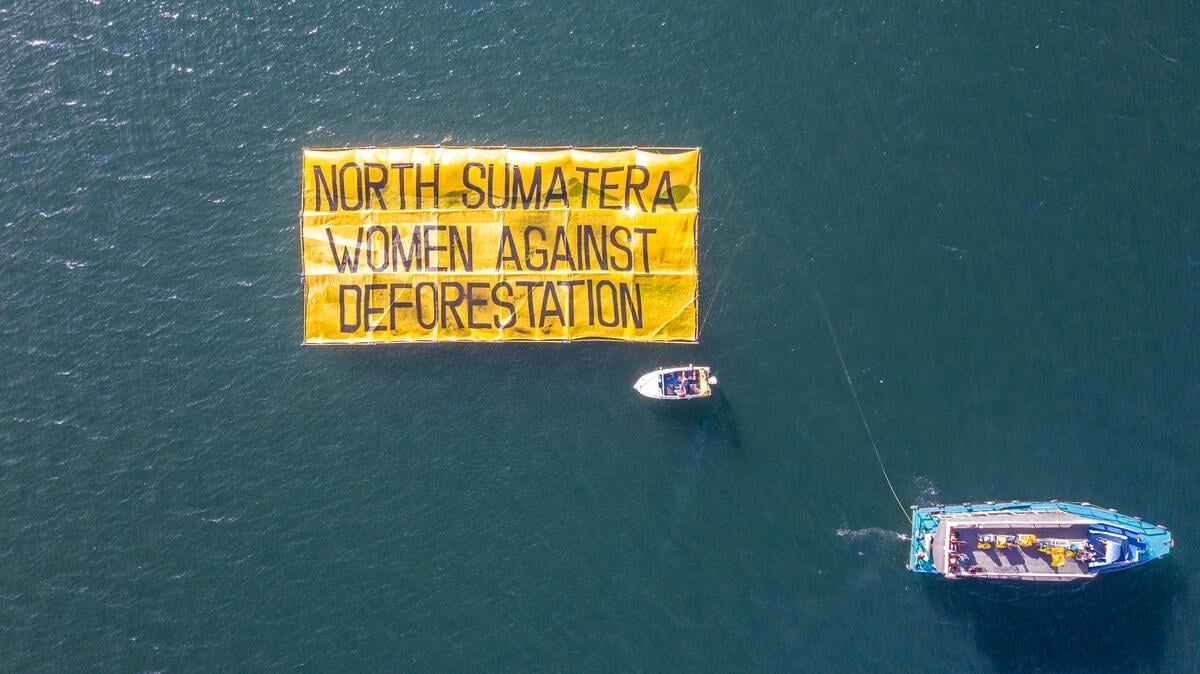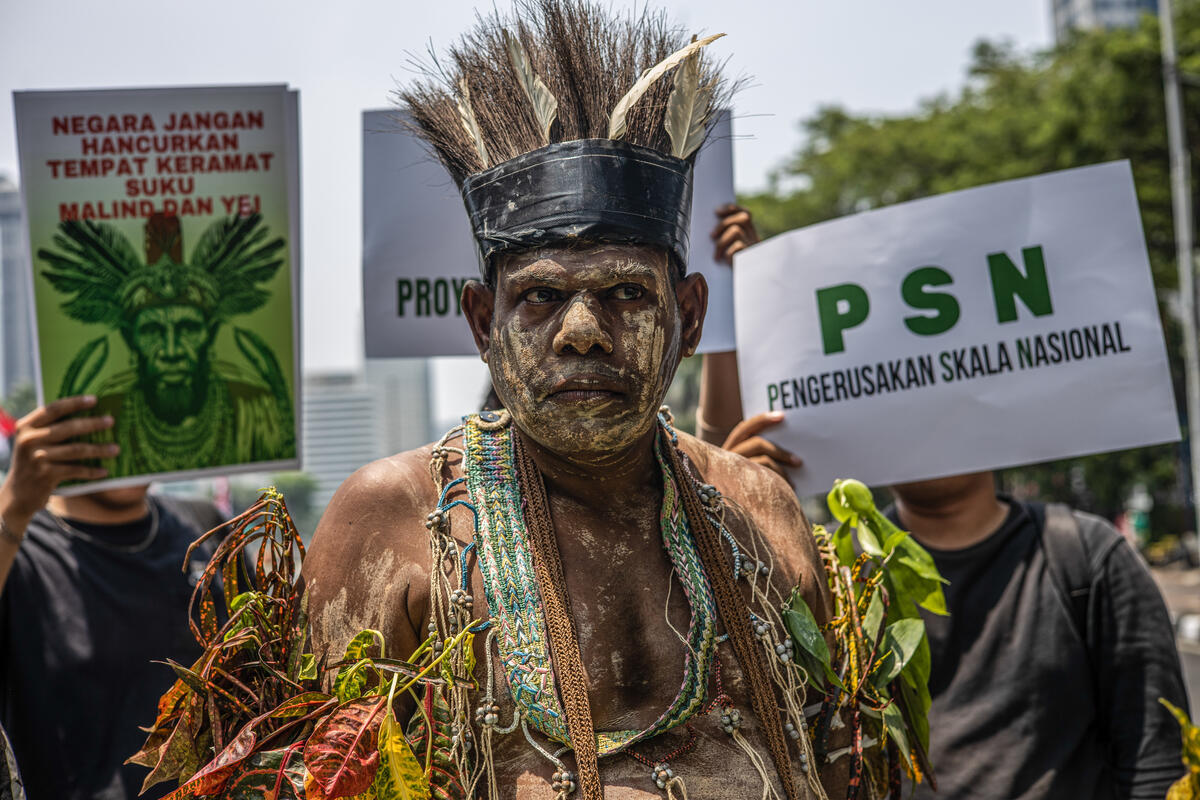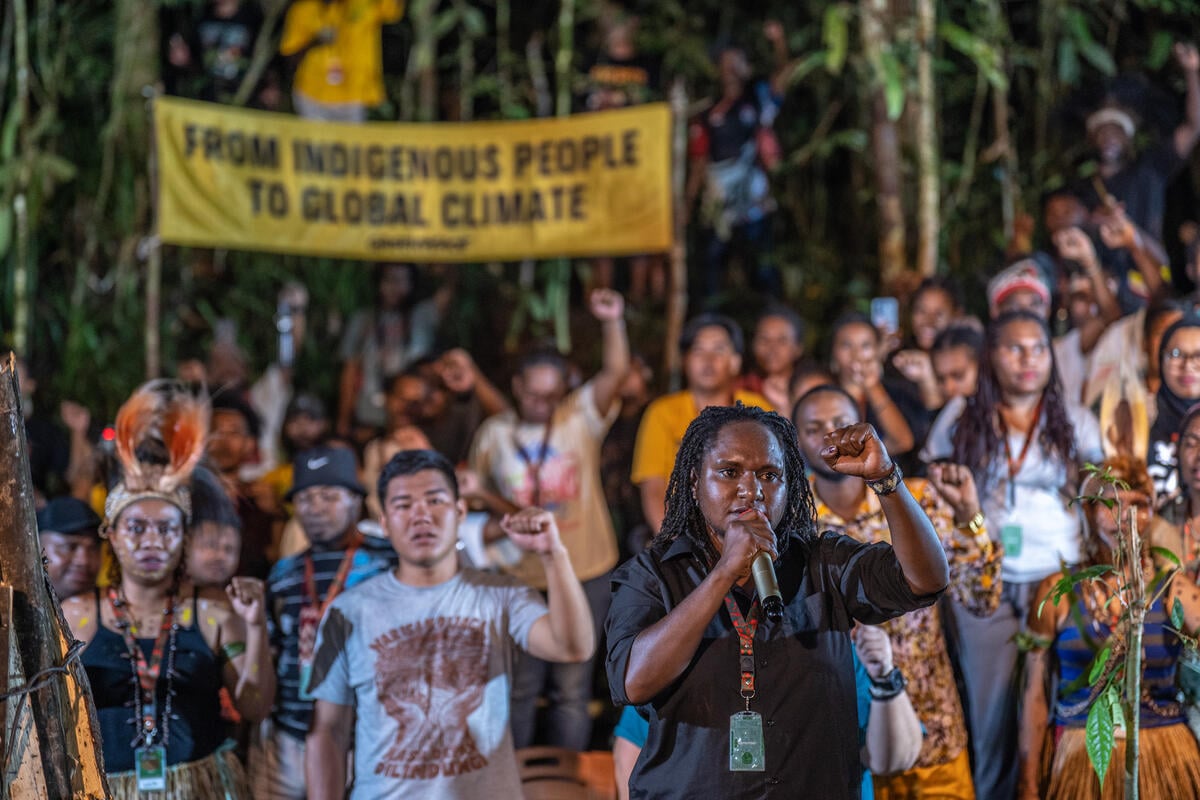Jakarta— Following publication of Greenpeace’s report [1] exposing the destructive operations of IOI’s suppliers and the blockade of IOI’s Rotterdam refinery, [2]
IOI responded with weak calls for collective industry discussions. It made no commitment to cancel trade deals with the dirty palm oil suppliers identified in Greenpeace’s investigations.In response to the statement, Greenpeace Indonesia forest campaigner Annisa Rahmawati said:
“IOI’s official response to a Greenpeace report exposing extensive deforestation and human rights abuses in its supply chain just passes the buck. Instead of cancelling contracts with suppliers in gross violation of its policies, the company continues to dodge decisive action and waits for others to make the first move. Despite being one of the largest palm oil companies in the world, IOI portrays itself as virtually powerless and appears to be playing for time.”
IOI claims to share Greenpeace’s analysis that having a No Deforestation policy in itself is not enough to protect forests or guarantee social justice in company supply chains. However, rather than taking firm action by suspending trade with all the supplier groups named, it seeks yet more discussions with industry partners, without firm expectations as to what these discussions must achieve.
If IOI is serious about solving the urgent problems documented by Greenpeace and other NGOs, it must lead by example and immediately:
- Cut contracts with the companies named in our most recent report
- Resolve outstanding conflicts
- Impose a moratorium on all new plantation development until compliance can be verified by independent auditors [3]
- Drive full transparency amongst its suppliers by requiring them to publish land use maps in a standard digital format to enable analysis ,monitoring and compliance checks;
- Engage other stakeholders in the plantation sector to share and use these tools and standards
- Proactively monitor suppliers to check compliance and establish a clear, time-bound route for excluding rogue companies
Greenpeace concludes that unless IOI is willing to take these decisive, measurable actions to clean up its supply chain, its commitment to ‘use its voice and influence’ is meaningless. A failure to act is a betrayal of the millions of people affected each year by land conflicts, forced labour, and pollution from forest fires as a result of the actions of IOI and its suppliers.
“Another talking shop will not lead to fundamental reform in the palm oil industry. It’s time for IOI to stop stalling and to start leading by example,” Annisa added.
Notes to the editor:
[1] http://www.ioigroup.com/Content/NEWS/NewsroomDetails?intNewsID=817
[2] http://www.greenpeace.org/international/en/publications/Campaign-reports/Forests-Reports/A-Deadly-Trade-off/
[3] The precedent set by the Brazilian Soya Moratorium is a model IOI and other palm oil companies can look to as an example of an industry-led effort that slashed deforestation rates in the Amazon. In 2016, after 10 years of operation, the moratorium was made permanent and through supply chain transparency all companies have a vested interest in its continued success.
Media Contacts:
Annisa Rahmawati, Greenpeace Indonesia Forest Campaigner
E: [email protected] , M: +62 811 1097 527
Sol Gosetti, International Communications Coordinator, Indonesia Forest campaign
E; [email protected], M:+44 7380845754



